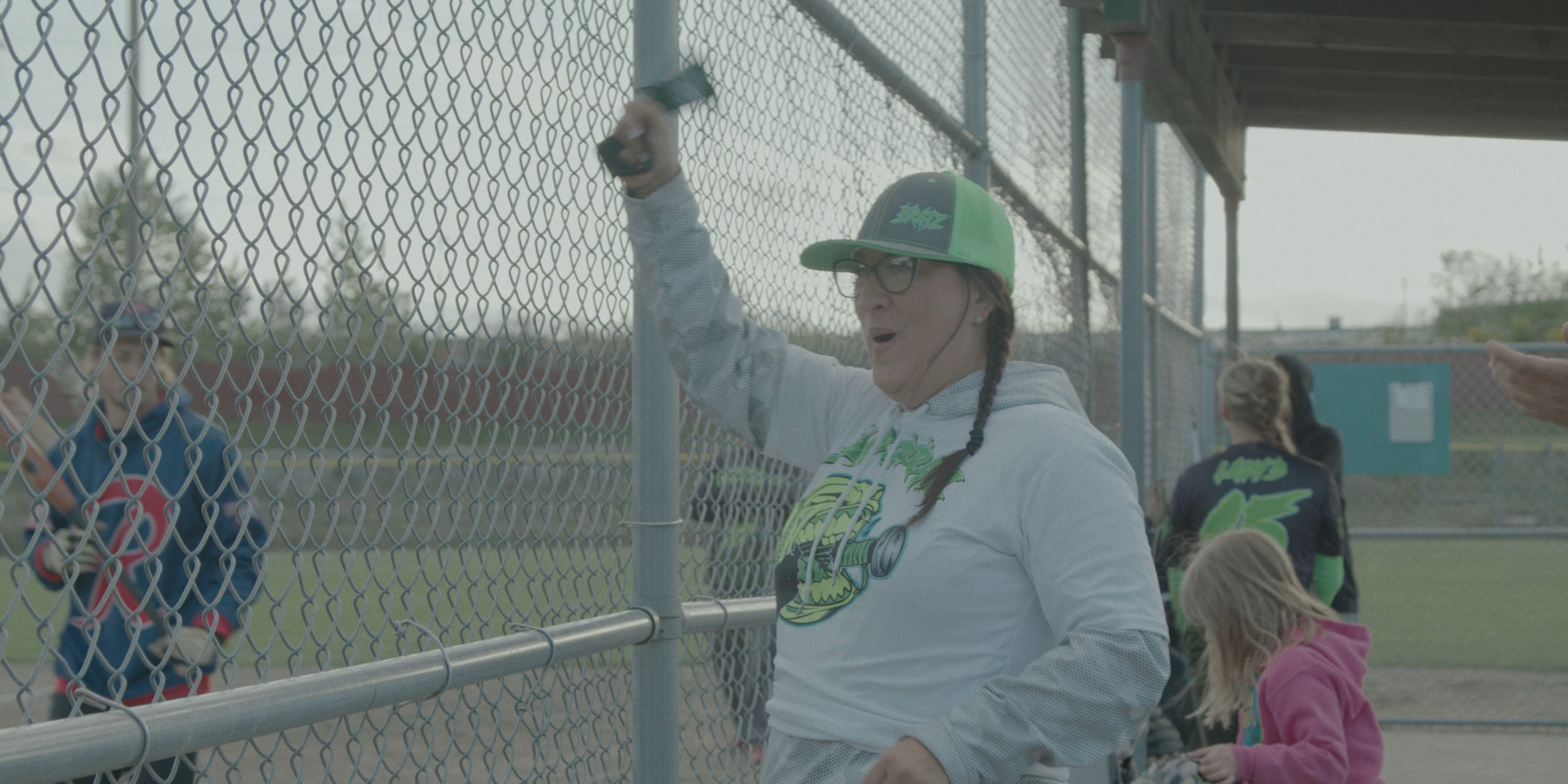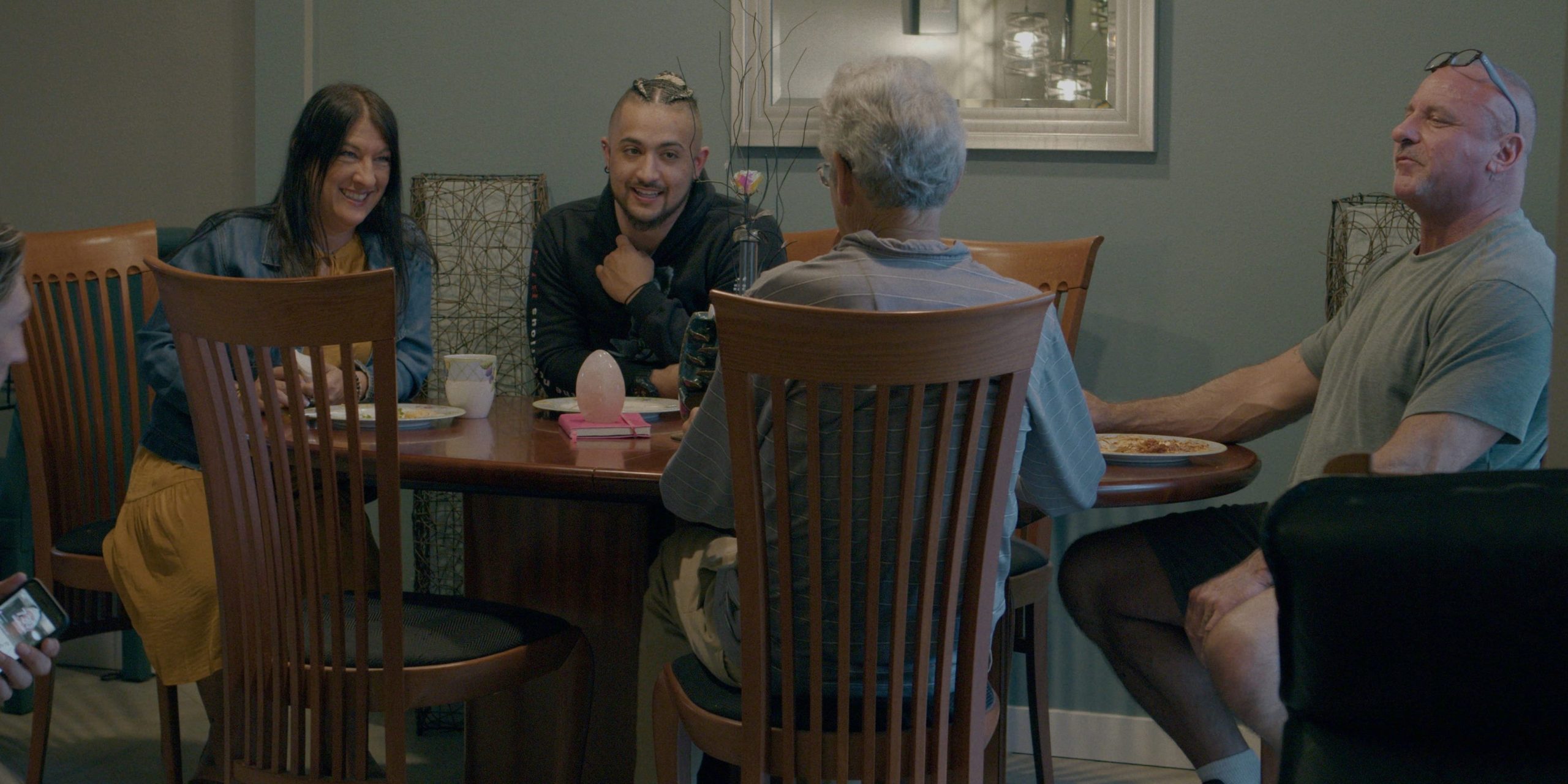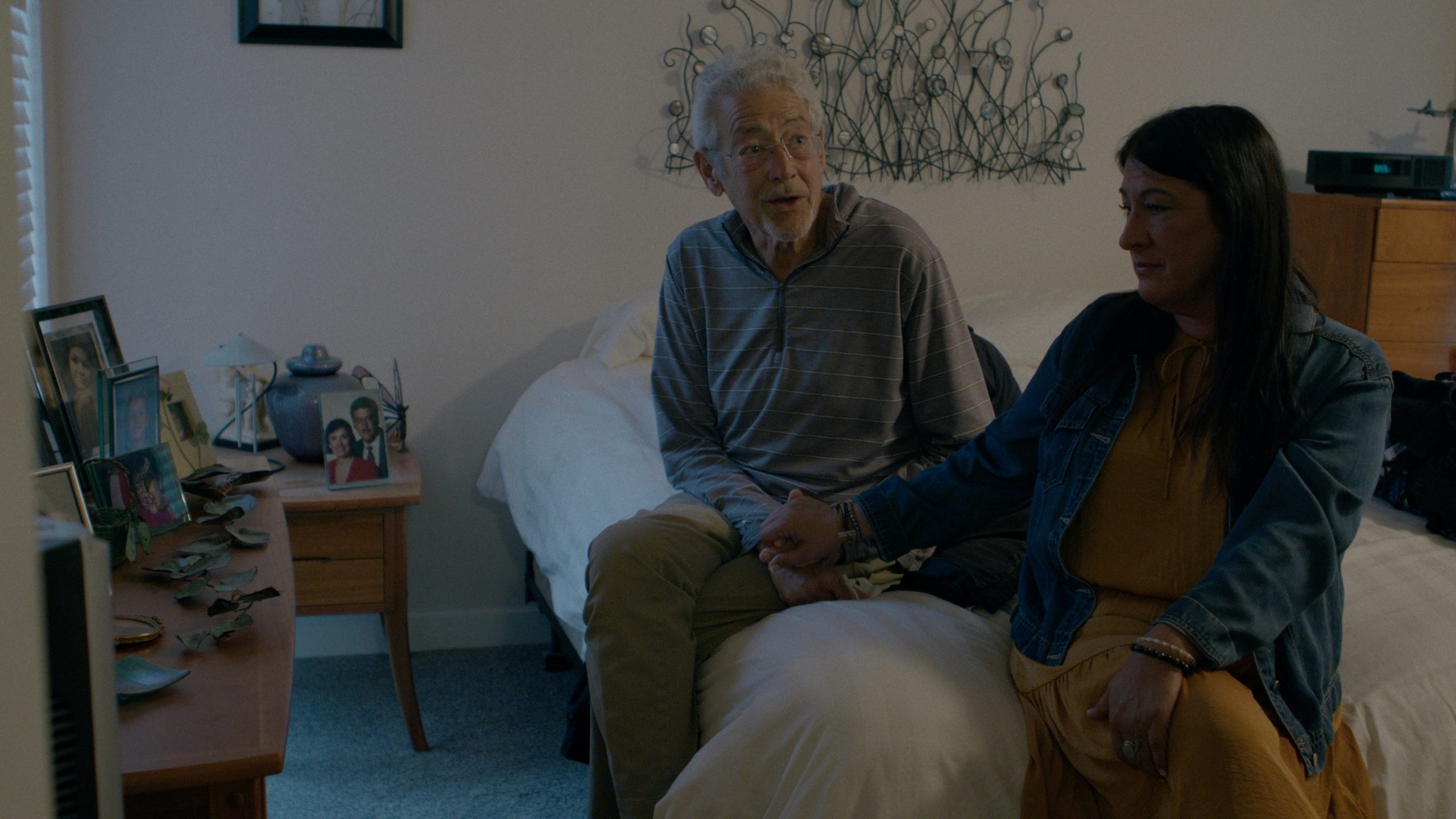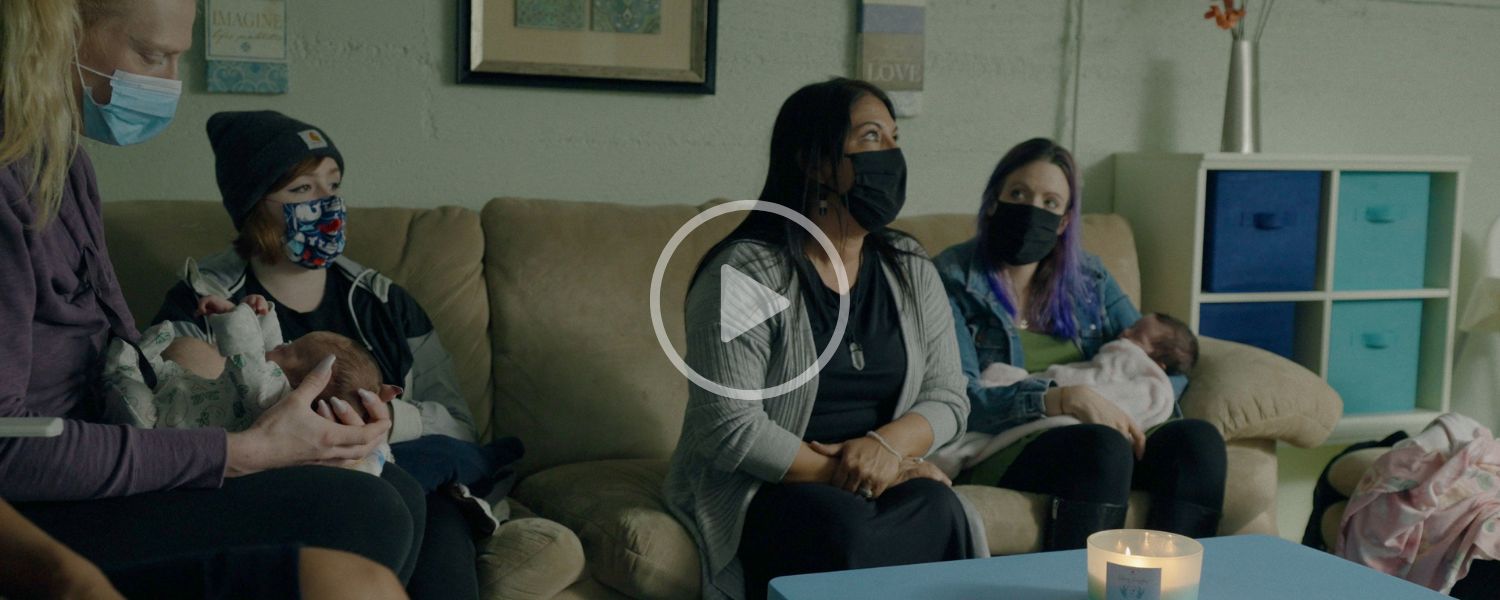Being Gina
The story of Gina Wassemiller, a mother’s journey to finding her inner strength and reconnecting with family after experiencing the removal of her children and overcoming substance use disorder. Gina now helps parents with similar obstacles stay connected with their children through her work as a parent ally.

About the film
In “Being Gina,” we meet and learn from Gina Wassemiller, a mother of three and a passionate parent ally, about her personal journey of healing and resilience. She recounts her evolution from being a parent struggling with substance use disorder and abuse and losing her children to now being a leader at the F.I.R.S.T. Legal Clinic (Family Intervention Response to Stop Trauma), an organization that supports new mothers experiencing substance use challenges with legal advocacy and other services to prevent CPS removals. Through the reflections of a F.I.R.S.T. Legal Clinic mom, we see the impact trusting relationships and authentic human connections can have on families’ abilities to thrive. Empathy is built through understanding that parents are essential to their children’s well-being and worthy of receiving the supports they need to keep their families safely together. At its core, “Being Gina” is a testament to human potential and a reminder that when people are seen as worthy individuals, despite the challenges they may be facing, and provided with the supports they need, they can exercise their inherent strengths and create true and lasting change in them and their families’ lives.
Watch the film

Critical Questions
We hope that the following critical questions highlight the importance of centering empathy, compassion, and understanding in your work with families to ensure they are seen, heard, and listened to without judgement. Most importantly, we encourage you to engage families in ways that center them as the architects of their own well-being.
- After watching “Being Gina”, one of the overarching themes is how Gina, drawing from her own experience, recognizes the importance of seeing parents in their full humanity despite the challenges they may be experiencing. In thinking about the stereotypes associated with parents struggling with substance use disorder, how do those perceptions impact the type of supports and care families receive? What are the different ways your community is working to disrupt these types of stereotypes and see parents in their full humanity? What more needs to be done?
- At one point, Gina says, “I offer the support I wish I’d had.” Reflect on how the stereotypes centered around shaming and blaming of parents living in addiction prevented Gina from being seen as a parent who deserves supports and resources to keep her family together. Now, consider the types of supports Gina offers F.I.R.S.T. Legal Clinic parents, which she didn’t receive. Are these supports available in your community? How can you help focus these supports on keeping families together?
- Because of Gina’s lived experience, she understands the challenges and barriers the women in the program are facing and is able to build authentic connections with them. Can you imagine what it feels like for a parent to have an ally like Gina and a support program like the F.I.R.S.T. Legal Clinic advocating on their behalf? What makes Gina’s lived experience so important for the parents she is working with?
- Think about Gina in her journey from being a parent whose children were placed in out-of-home care to now, years later, being a leader of an organization supporting families who are dealing with those same struggles. We can see that with the right support, people can exercise their inner strengths to make positive changes in their lives. How is your organization keeping this mindset front and center in the work you are doing with families and living this value every day?
- In thinking about envisioning transformative change to support families like Gina’s and others from the F.I.R.S.T. Legal Clinic, why is it important to create programs and solutions that are parent-led and informed by their lived expertise? How can communities harness current and potential parent allies’ strengths and passion to create solutions that consider what the whole family needs versus solely thinking about out-of-home placement for the child?
Download the guide

FURTHER READING
Parent Engagement
Jurisdictional Scan: Transforming Child Welfare Systems: What are the key elements for sustaining, expanding, and spreading parent partner programs? (July 2020), Casey Family Programs
Child protection: listening to and learning from parents (September 2017), Maggie Mellon
Family Engagement: Partnering with Families to Improve Child Welfare Outcomes (July 2021), Children’s Bureau and Child Welfare Information Gateway
How do parent partner programs instill hope and support prevention and reunification? (June 2019), Casey Family Programs
Family Voices on Mental and Behavioral Health Supports (June 2021), Family Voices United
Strategies for Authentic Integration of Family and Youth Voice in Child Welfare (2019), Capacity Building Center for States
Family Voices United Family First Peer Learning Session (March 2021), Family Voices United
What are the four tiers of authentic family engagement? (December 2018), Casey Family Programs
Transforming the Child Welfare System
“What happened to you? Conversations on Trauma, Resilience, and Healing,” authored by Bruce D. Perry, MD, PhD and Oprah Winfrey
Addressing Economic Hardship Key to Preventing Child Welfare System Involvement (2021), Chapin Hall at the University of Chicago
Why should child protection agencies become trauma-informed? (May 2018), Casey Family Programs
The Importance of a Trauma-Informed Child Welfare System (May 2020), Children’s Bureau and Child Welfare Information Gateway
Building Relationships, Strengthening Neighborhoods (2021), Seth D. Kaplan, Stanford Social Innovation Review
What are the key elements for sustaining, expanding, and spreading parent partner programs?(August 2020), Casey Family Programs
Storytelling
How Stories Change the Brain (December 2013), Paul J. Zak
Science of Story Building: What Research and Scholarship Tell Us About Good Stories, UF College of Journalism and Communications
Using Story to Change Systems (February 2018), Ella Saltmarshe, Stanford Social Innovation Review
Lived experience and personal narrative: pathways to connection (April 2017), Louise Byrne
Storytelling and Social Change: A guide for activists, organizations and social entrepreneurs(2015), Paul VanDeCarr, Working Narratives
Download the guide
Watch the film
Behind the scenes
Meet Gina and the filmmaker behind the lens.

Radha Mehta
Filmmaker
Radha Mehta is a BIPOC (South Asian) woman filmmaker based in Los Angeles, California and is currently a Directing Fellow at American Film Institute. Prior to attending AFI, Radha served as a Director/Producer on various short documentaries on social justice causes including domestic violence and sexual assault, mental health, taboos within the South Asian culture, and most recently mothers recovering from substance abuse disorders while staying united with their newborns. Radha has been accepted into two Sundance Co//ab Workshops, and with the help of her Sundance Advisors and Mentors, she has expanded and strengthened her craft in her two most recently completed films, “Being Gina” and “Parent Ally.”
Given her background in documentary filmmaking, Radha hopes to hone in on many untold true stories of the underserved and underrepresented and, with the help of AFI and beyond, craft compelling and humanizing narratives to affect positive social change.

Gina Wassemiller
Parent Ally
Gina Wassemiller is the Parent Ally for the FIRST Legal Clinic. Gina is also a contracted Social Service Specialist with the Office of Public Defense Parent Representation Program. Gina has been actively involved in a number local and national organizations and support groups, including Snohomish County Table of Ten, Snohomish County Parent Ally Committee, Washington State Parent Ally Committee, the Birth Parent National network, and the Parent for Parent program at the YWCA.
Gina brings passion and hope to the work she does with families. Gina was one of the parents she works with today. Her case ended in a relinquishment of her parental rights by choice. Gina believes a positive outcome is one a parent can live with forever. She knows this from her own experience. She is a survivor of domestic violence and a recovering addict. Gina meets parents where they are at and instills hope into each parent she works with.

